Transparency
Statement on Due Diligence of Human Rights and Decent Working Conditions in Our Business and Supply Chain
1. Introduction and background
The Transparency Act entered into force on 1 July 2022. The main purpose of the Act is to promote businesses' respect for fundamental human rights and decent working conditions. The Act also aims to ensure that the general public has access to information on how businesses address their human rights risks.
The Transparency Act obliges Lumi Gruppen and its subsidiaries («The Lumi Group») to:
- conduct due diligence assessments in accordance with the OECD Guidelines for Multinational Enterprises,
- provide an account of our work related to due diligence on human rights and decent working conditions, and
- respond to information requests from the general public.
The Lumi Group is working to establish a comprehensive system to ensure respect for human rights within our operations, supply chain and with our business partners. The Lumi Group is committed to creating a positive and healthy corporate culture characterised by well-being and security, and decent working conditions are a priority for the Group.
This statement describes the Lumi Group’s guidelines and procedures for managing risks related to human rights and decent working conditions, which significant risks we have identified, and the measures we have implemented as a result of these identified areas of risk. The statement covers the period 1 July 2022 to 31 December 2022.
2. Our business and operations
The Lumi Group consists of the parent company Lumi Gruppen AS and its subsidiaries Lumi Bidco AS, Lumi Services AS, Sonans Privatgymnas AS (Sonans), Oslo Nye Høyskole AS (ONH), ONH Education AS (ONHE) and Norwegian School of Technology AS (NTech). The operational segments within the Group are Sonans and ONH, including ONHE (see the organisational chart below). The Group operates in the Norwegian high school private candidate exam preparation market and in the Norwegian university college market. During 2022, the Lumi Group had 469 employees or 247 full- time equivalents (FTEs).
This statement covers the entire operations of the Lumi Group and serves as the statement which fulfils Section 5 of the Transparency Act for the following companies and their locations.
- Sonans Privatgymnas AS
- Oslo Nye Høyskole AS
2.1. Lumi Gruppen AS
Lumi Gruppen is the parent company of the Group and a leading supplier of education in Norway. Lumi Gruppen had two employees during 2022. Lumi Gruppen has offices in Nydalen, Oslo.
For information about the due diligence assessment for the Lumi Group, see section 4.2, Description of the risk assessment.
For information about general measures implemented by the Lumi Group, see section 5, This is how we work to prevent, reduce and stop adverse impacts.
2.2. Sonans
Sonans is Norway’s market leader within high school private candidate exam preparation courses, primarily to help former high school students to achieve better exam results and/or complete their high school diploma to enter higher education. During 2022, Sonans had 106 full-time employees. Sonans has offices in Nydalen, Oslo and 12 campuses in Norway in addition to an online offering.
For information about the due diligence assessment for Sonans, see section 4.2, Description of the risk assessment.
For information about general measures implemented by the Lumi Group, see section 5, This is how we work to prevent, reduce and stop adverse impacts.
2.3. Oslo Nye Høyskole (ONH) (including ONH Education)
ONH is a private university college established in 2007, acquired by Lumi Gruppen in 2019. ONH has one campus located centrally in Oslo, in addition to a strong online offering. During 2022, ONH had 119 employees. ONH has one campus in Oslo in addition to an online offering.
For information about the due diligence assessment for ONH, see section 4.2, Description of the risk assessment.
For information about general measures implemented by the Lumi Group, see section 5, This is how we work to prevent, reduce and stop adverse impacts.
3. Anchoring the work of
safeguarding human rights
The Lumi Group has committed to acting responsibly and ensuring respect for fundamental human rights and decent working conditions. This commitment is evident in our human rights policy, which has been adopted by the Board.
Our guidelines and policy are publicly available on our website: https://lumiinvestor.com.
Based on our guidelines, we strive for full compliance with the UN Declaration of Human Rights and the OECD Guidelines for Multinational Enterprises. We also commit to work actively towards implementing respect for fundamental human rights in our own business operations, and to do our utmost so that our employees, suppliers and other business partners respect and comply with these commitments, and are not involved in human rights violations. In our guidelines, we commit to conducting due diligence assessments in accordance with the OECD Guidelines for Multinational Enterprises.
Our ethical guidelines also guide our work on fundamental human rights and decent working conditions. We are in the process of revising our ethical guidelines as well as establishing procedures to handle our human rights risks, including a whistleblower channel and complaint mechanism to uncover adverse impacts.
4. The Lumi Group’s risk assessment
The Lumi Group has completed a risk assessment of actual adverse impacts and significant risks for adverse impacts at the Group level. The assessment included all subsidiaries within the Group.
4.1. Method used in the risk assessment
The Lumi Group has completed a risk assessment of actual adverse impacts and significant risks for adverse impacts at the Group level. The assessment included all subsidiaries within the Group.
The Lumi Group operates within a framework based on the UN Guiding Principles (UNGP) on Business and Human Rights and the OECD Due Diligence Guidance for Responsible Business Conduct. In our work, we have assessed the risk of adverse impacts both in the supply chain and risk in our own organisation, and we have emphasised making a thorough overall risk assessment as the basis for choosing priorities in our further work. In the process of assessing supplier risk, we have prioritised examining the most significant suppliers based on purchasing volumes and the nature of the service or goods provided.
We have performed an analysis of our purchases and suppliers based on our purchasing history for the 2022 financial year, where the suppliers are categorised by the nature of the service or goods provided and their geographical location. The Lumi Group has based the assessment on internal evaluations of the suppliers and industries based on our own experiences, general perceptions and the suppliers’ reputations. The assessments were performed in cooperation with people in the Lumi system who collaborate with the relevant supplier industries. We have performed similar assessments of our own business operations.
4.2. Description of the risk assessment
The risk assessment so far has not identified any actual adverse impacts that we have caused or contributed to. Nor did we identify any significant risks of adverse impacts.
Based on the risk assessment and considering the influence we believe we have on these risks, we have chosen the following areas for special priority in our further work:
- Poor wages and working conditions in the supply chain for cleaning services
- Indecent working conditions in the supply chain for IT products/services and office supplies
- Indecent working conditions at the suppliers to the study centre in TanzaniaWe believe that we have a greater influence and a closer link to risk connected with the purchase of cleaning services and will give that the highest priority going forward. We will consider implementing risk-reducing measures for new major purchases of IT products/services and office supplies. At the study centre in Tanzania, we will initiate a mapping process to identify whether there are suppliers where there is a need for risk-reducing measures. This is described more closely in section 5.
We have also assessed the risk within our own business operations using the same method and evaluation criteria as described above. We have not identified any actual adverse impacts or significant risks in this assessment with the following exception:
- Safety for employees and students related to use of laboratories.
This is an area over which the company itself has control and can unhindered ensure measures and compliance with regulations to ensure the safety of employees and students.
5. This is how we work to prevent, reduce and stop adverse impacts
To reduce identified risks, we have implemented an action plan. The action plan includes both general risk-reducing measures and measures specifically targeting our prioritised risk areas. The general measures include auditing and the further development of governing documents for our work on human rights and decent working conditions as well as assessing the need for further supplier mapping based on the risk assessment.
The measures aimed at the prioritised risk areas includes these things, among others:
- Defining procedures for monitoring cleaning service suppliers regarding wages and working conditions, including clear roles and responsibilities
- Mapping suppliers of the study centre in Tanzania
- Raising the expertise of employees with purchasing responsibilities
- Routines for training in use of laboratories and necessary competence to take care of safety
Furthermore, we intend to implement general measures to gather more information about our own business operations and supply chain, including:
- Conducting regular employee surveys, including about working conditions
- Increasing knowledge about the content of ethical guidelines
- Developing whistleblower channels further, making them available to external individuals
The goal of the measures we have implemented is to promote human rights and decent working conditions within our own operations, contribute to improvements at our suppliers and significantly reduce the risk of adverse impacts associated with our business operations. We expect that these measures will help to reduce risks.
Currently, the measures are being implemented at the Group level. During this year, we will continue implementing the measures in our subsidiaries affected by the identified risk areas.
6. The way forward
In addition to the aforementioned prioritised areas and identified risks, we will focus on improving the implementation of due diligence assessments and build expertise about human rights and decent working conditions over the next year.
The due diligence assessments will be carried out at least annually, as well as when there are material changes in the risk landscape or significant changes in the company’s risk assessments.
Lumi Gruppen will issue statements and respond to information requests as specified in the Transparency Act. Information requests should be directed to info@lumigruppen.no
This statement was approved by the Board of Lumi Gruppen on 19 June 2023 and signed by the Board and CEO of the following companies:
- Sonans Privatgymnas
- Oslo Nye Høyskole

